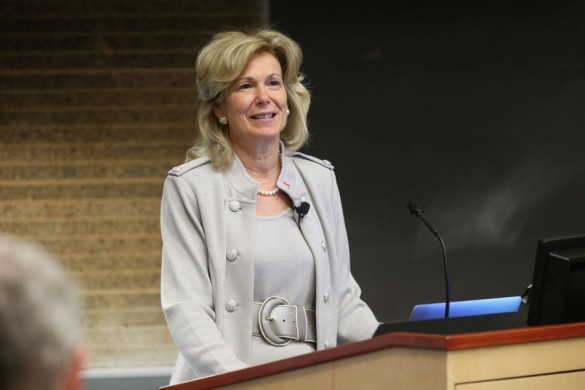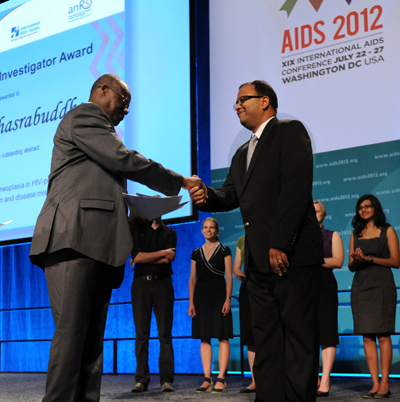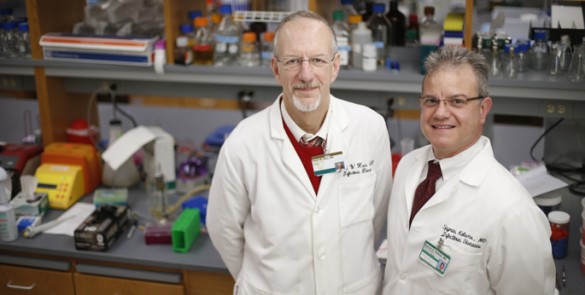
“Incredible progress” has been made in the fight against AIDS, but in some countries, especially in sub-Saharan Africa, “this epidemic is ready to get out of control,” U.S. Ambassador-at-Large Deborah Birx, M.D., told a Vanderbilt University audience last week.
To illustrate the enormity of the problem, Birx compared AIDS to headline-grabbing Ebola. Since the latest outbreak began in West Africa in December 2013, Ebola has killed about 10,000 people. Last week alone, more than 25,000 adults died of AIDS.
As U.S. Global AIDS Coordinator and U.S. Special Representative for Global Health Diplomacy, Birx oversees the President’s Emergency Program for AIDS Relief (PEPFAR).
Since PEPFAR was launched in 2003 under then-President George W. Bush, the U.S. government has committed more than $59 billion to fight AIDS, tuberculosis and malaria around the world.
As of Sept. 30, 2014, 7.7 million people infected with the AIDS-causing human immunodeficiency virus (HIV) were receiving life-saving anti-retroviral treatment.
Yet every year, 380,000 adolescent girls are infected with HIV. “We have not had an impact on infections in young women,” Birx said during her lecture, which was sponsored by the Vanderbilt Institute for Global Health. “We have to figure (this) out.”
To that end, PEPFAR has begun its third five-year funding period with a new emphasis: “PEPFAR 3.0: The Right Thing in the Right Place at the Right Time.” And with new partners.
With the Children’s Investment Fund Foundation, PEPFAR is partnering on the “ACT” initiative, Accelerating Children’s HIV Treatment, to increase by an additional 300,000 the number of infected children who are able to receive anti-retroviral treatment.
With the Gates Foundation and Nike Foundation, the program established DREAMS (Determined, Resilient, Empowered, AIDS-Free, Mentored and Safe women) to reduce new HIV infections in young women.
“We can’t afford to spread money around,” Birx said. “We have to focus and concentrate money for impact.”
A graduate of the Hershey School of Medicine at Pennsylvania State University, Birx began her career with the Department of Defense in 1985 as a military-trained clinician in immunology, focusing on HIV/AIDS vaccine research.
As director of the U.S. Military HIV Research Program at the Walter Reed Army Institute of Research from 1996-2005, she helped lead an HIV vaccine trial that provided the first supporting evidence a vaccine could prevent HIV infection.
The research continues. “We needed a vaccine … a decade ago,” she said. “We need it desperately now.”
During her two-day visit to Nashville, Birx visited with state and Metro health officials, and with representatives of several programs and community agencies that provide HIV/AIDS treatment and services including Nashville CARES and the Meharry Community Wellness Center.
Of Vanderbilt she said, “I just want to thank you for not only educating brilliant medical students, having top-of-the-line medical care, but also understanding that we’re only as good as the entire system which includes our outreach to the community.”
“Do we have the collective will to make the hard choices to reach more (people)?” she asked. “We all have to be part of the change that makes this possible, so collectively we can have a bigger impact on the epidemic.”















